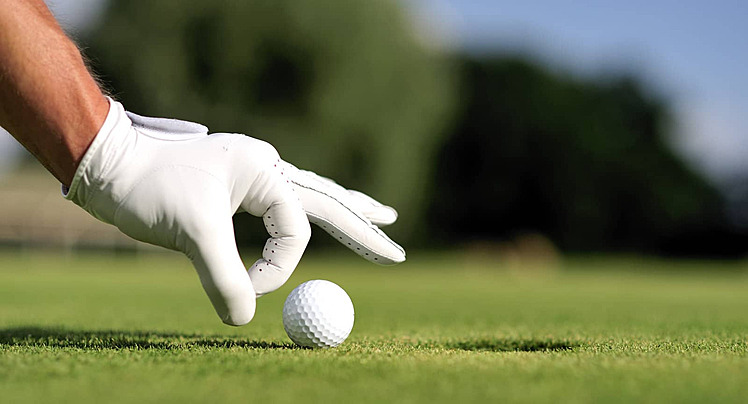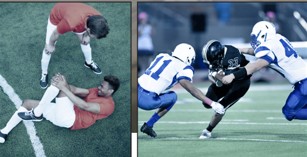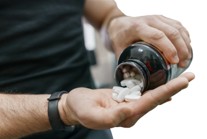
Think about the following questions.
1. What do you know about asteroids?
2. When was the last time a large rock from space or an asteroid hit Earth?
3. Should we be concerned about the chance of an asteroid hitting Earth in the future?
VOCABULARY PREVIEW
Match each New Academic Word List(NAWL) word with the correct definition.
- explicit
- cheat _____
- inevitably _____
- intervene _____
- scholarship _____
- intensity _____
- a. to break a rule, usually to gain an advantage at something
- b. to become involved in something in order to have an influence on what happens
- c. the quality of being intense; extreme strength or force
- d. an amount of money given by a school, organization, etc., to help a student pay for his or her education
- e. clear and complete; leaving no doubt about the meaning
- f. certainly; unavoidably
CHEATING IN SPORTS

"It doesn't matter whether you win or lose; it's how you play the game." This is a common saying in American sports, meaning that fun and good sportsmanship are more important than victory. However, two related factors have been pushing American sports in a different direction. One of these factors is the intensity of Americans' obsession1 with their favorite teams, and the other is the money and prestige that go along with winning. These two factors put extreme pressure on both players and coaches to focus single- mindedly on victory. Inevitably, the result is a problem that is spreading and becoming more serious. That problem is cheating.
Of course, there are rules in all sports to penalize2 cheating. So coaches and players have had to come up with ingenious ways to get around the rules. Getting a competitive edge, even unfairly, is seen as a "strategy" rather than cheating. Illegal acts are now even being accepted as part of the game. Coaches encourage players to cheat, or coaches simply look the other way when they know players commit illegal acts during games. And referees3 either fail to intervene, or they impose4 minimal penalties.
A professor of sports and recreation, Dr. James Frey, introduced the term "normatives5 cheating" to refer to the methods of cheating commonly used in sports today. This refers to strategies used to create conditions of some advantage over an opponent. They are called "normative" because there are no explicit rules against these strategies. Instead, they are loopholes6 that coaches and players have learned how to use to gain a competitive advantage.
There are many forms of normative cheating. In basketball, for example, it is common for a player to pretend to be fouled in order to receive an undeserved foul shot. In football, players are typically coached to use techniques7 to hold or trip opponents without referees noticing. And in baseball, home teams often "doctor" their fields to suit their strengths and minimize the strengths of their opponents. For example, if a home team knows they will face a fast team, they will spread water or sand between bases to slow down the runners of the other team. Another technique used by home teams to cheat is increasing the heat in the visitor's locker room to make the athletes sluggish8. And some schools even use psychological tricks such as painting the visitor's locker room pink, a color said to reduce strength and make people less aggressive9.
Normative cheating extends to off-the-field areas of sports as well. Colleges compete by offering scholarships to the best high-school players in the country. Although there are rules about when and how often colleges can contact high-school recruits, coaches are adept at bending these rules. For instance, it is against the rules to send newspaper clippings about a university sports team to players being recruited. However, if a newspaper clipping is attached to the back of a letter, it is technically OK, even if the letter has only one sentence.
Normative cheating has even entered American high-school sports. If a good athlete wants to play for a school far away from where he or she lives, he or she may move to the home of a relative or friend that does live near that school. That way, the athlete technically lives within the school district of his or her new school. The athlete has obeyed the letter of the law10, but not the spirit.
New Academic Word List
- obsession 1 : n. a state in which someone thinks about someone or something constantly
- penalize 2 : v. to punish for breaking a rule or law
- referee 3 : n. a person who makes sure that players follow the rules of a game or sport
- impose 4 : v. to cause something (such as a punishment) to affect someone by using your authority
- normative 5 : adj. based on what is considered to the usual or correct way of doing something
- loophole 6 : n. an error or gap in the way a law or rule is written that makes it possible for some people to avoid obeying it
- technique 7 : n. a way of doing something by using special knowledge or skill
- sluggish 8 : adj. moving slowly or lazily
- aggressive 9 : adj. ready and willing to fight or be forceful
- the letter of the law 10 : idiom. the literal meaning of the words of a law or rule, in contrast to its intended effect
READING COMPREHENSION
A ‣ Mark each statement as true (T) or false (F) according to the reading.
- Both coaches and athletes are to blame for widespread cheating in sports.
- True
- False
- Referees usually try hard to stop any type of cheating.
- True
- False
- Not all forms of cheating break the rules of sports.
- True
- False
- The color pink is thought to make athletes more aggressive.
- True
- False
- Colleges are not allowed to communicate with high-school athletes.
- True
- False
B ‣ Choose the best answer according to the reading.
- What main point does the reading make about cheating in sports?
- a. It happens constantly, but most fans aren't aware of it.
- b. It is becoming more common and accepted.
- c. It is the result of coaches' obsession with winning.
- d. It has spread from professional sports to school sports.
- What is the definition of "normative cheating"?
- a. Cheating that almost everyone is aware of
- b. Cheating that referees ignore
- c. Strategies that do not break explicit rules
- d. Strategies that are kept secret
- Which is NOT an example of normative cheating?
- a. Acting as if you have been hit by another player
- b. Creating a bad atmosphere in another team's area
- c. Hitting another player on purpose to hurt him or her
- d. Holding or tripping opponents without referees noticing
- In paragraph 5, the word adept is closest in meaning to _____.
- a. strict
- b. famous
- c. surprised
- d. skilled
C ‣ Look for the answers in the reading and write them on the lines.
- How do baseball teams sometimes change their fields to get an advantage?
_____ - How has normative cheating made its way into high-school sports?
_____
SUMMARY
Fill in the blanks with the phrases in the box.
- school district
- college and high-school
- explicit rules
- undeserved foul shot
- locker room
- obsession with
Because some people in sports have a(n) 1 _____ winning no matter what, cheating has become more common. Players and coaches have come up with clever ways to cheat without breaking 2 _____.This kind of strategy is called normative cheating. One example is when a player pretends to be fouled in order to get a(n) 3 _____. Or a team might set the heat very high in their opponents' 4 _____ to make players on that team sluggish during the game. Normative cheating has even spread to 5 _____ sports. For example, an athlete might move in with a relative in a different 6 _____ in order to qualify for that school's team.
VOCABULARY PRACTICE
Fill in the blanks with the words in the box. Change the form if necessary.
- intervene
- cheat
- scholarship
- intensity
- explicit
- inevitably
- A good employee can decide what work needs to be done without needing _____ instructions.
- People who lose weight on crash diets will almost _____ gain the weight back.
- Although Ben knew he would be happy to see his old friend again, he was surprised at the _____ of his emotion.
- If you saw two strangers fighting on the street, would you keep walking or _____ ?
- The winners of the essay contest will each receive a $5,000 college _____ .
- When a D student got a perfect score on the final exam, the teacher suspected that the student had _____ .
SUPPLEMENTAL READING
Performance-Enhancing Drugs

The International Olympic Committee (IOC) has established special rules banning drugs that enhance performance. However, some athletes are experimenting with new drugs that are difficult to detect. The IOC forbids athletes from using steroids as strength builders. The most popular steroids are man-made forms of testosterone, a hormone already present in the body.
Another popular performance-enhancer is erythropoietin (EPO). EPO promotes red blood cell production. These cells deliver oxygen throughout the body. The oxygen boost it provides can improve an athlete's performance in a twenty-minute run by thirty seconds. In a marathon, it could give an athlete a four-minute advantage. EPO is dangerous because it can make the blood too thick for the heart to pump.
Human growth hormone (HGH), a third commonly used enhancer, contains naturally occurring amino acids that helps control growth from birth to adulthood. Genetically engineered HGH became available in 1985. Athletes use HGH to develop bigger muscles and then take steroids to strengthen the muscles. The drug is hard to detect because it passes out of the body in less than forty-five minutes.
Not everyone agrees that such drugs ought to be banned. Some argue that they should be allowed in order to help athletes perform at their best. As long as all competitors have access to the same substances, the argument goes, then there is nothing unfair about them.
Fill in the blanks with information from the reading.
- The IOC does not allow athletes to use drugs that _____ .
- EPO increases red blood cells, which _____ to the whole body.
- HGH is difficult to _____ because it leaves the body quickly.

Leave a comment
Load more